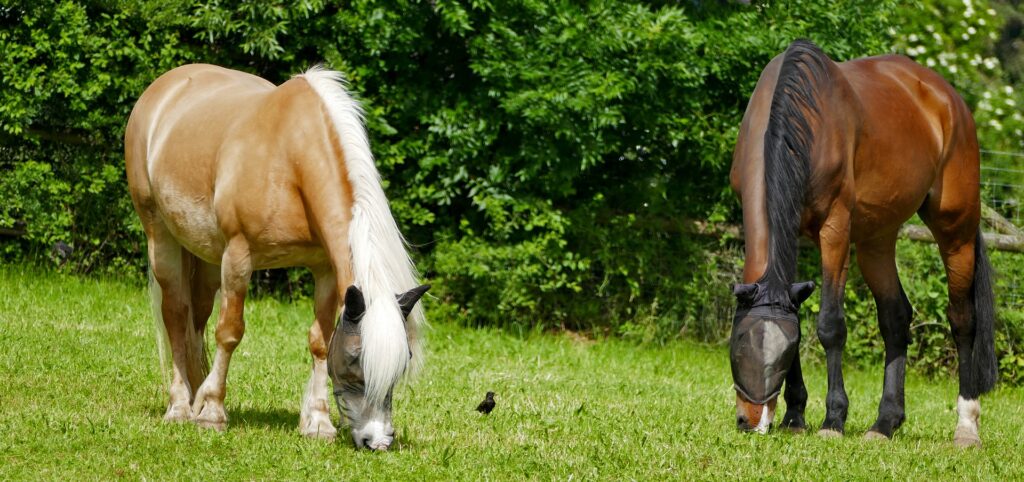Horse Healthcare Tips: Hydration and Sun Protection in the Summer Heat

In the summer months, it is extremely important to be aware of how the heat and sun can affect our horses. As the summer heats up around the country and especially in Florida, Palm Beach Equine Clinic would like to remind all equine owners to keep their horses in a cool, well-ventilated environment with protection from the hot weather.
There are many problems that can arise in the summer months from overheating, to dehydration, and even equine sunburn that owners should always keep in mind.
Covered Areas to Protect Your Horse
All horses should have access to shade and cool water throughout the day. Any exercise should be scheduled when the temperatures are lower, usually earlier or later in the day. Turnout should be limited to the night or cooler portions of the day, and fans can be provided indoors during extreme heat.

The average horse drinks between 5 to 10 gallons of water per day. It is important to provide clean, fresh water at all times and be aware of increased water necessities during extremely hot days.
Sweat and Sodium Levels
Sodium in your horse’s diet is very important to maintaining proper hydration. Providing a salt block or supplementing with electrolytes can help ensure that your horse is meeting their sodium requirements.
Especially in the extreme summer heat, horse owners should pay attention to the amount of sweat their horse is producing. Anhidrosis, or the inability to sweat normally, can be a common challenge for our equine partners in the summer months, particularly in hot, humid climates. In addition to lack of sweat, signs of Anhidrosis can include increased respiratory rate, elevated temperature, areas of hair loss, or dry, flaky skin. If you notice any of these signs, contact your veterinarian immediately.
Equine Sunburn Tips
Horses with white on their faces or bodies are especially prone to sunburn and should be protected from the harsh UV rays of the sun. Providing shade, covering your horse’s skin with fly sheets or fly masks, and applying sunscreen are all helpful ways to prevent a burn.
Fly masks are now made with extensions to cover the nose and muzzle. There are many different sunscreen products made specifically for horses, but most products approved for human use are also safe for our equine partners. Once again, horses that are particularly prone to sunburn can be kept cool and safe from the sun by staying indoors during the day and being turned out at night.
These are just a few of the important issues to be aware of during the hottest time of the year in Florida and around the country. Remember to keep your horse cool, well-hydrated, and protected from the heat and sun. Contact the veterinarians at Palm Beach Equine Clinic to learn more about precautions that can be taken to keep your horse happy and healthy throughout the summer months.